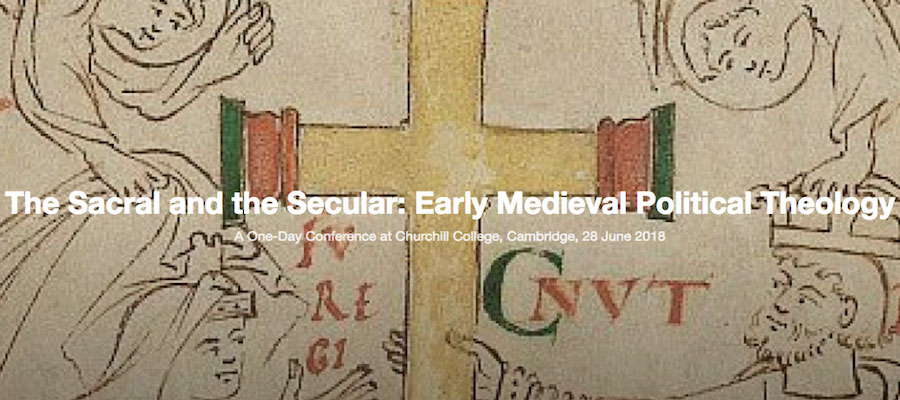The Sacral and the Secular: Early Medieval Political Theology, Churchill College, Cambridge, June 28, 2018
Ever since Ernst Kantorowicz popularised the term ‘political theology’ in the 1950s, scholars have known that the political and religious thought of the early Middle Ages cannot be separated. But since the 1990s there has been a resurgence of interest in this field. The traditional focus on sacral kingship has been replaced by an awareness of the early Middle Ages as a world of debate and contestation where a wide variety of political theologies existed. This one-day conference will explore the latest thinking on early medieval political theology, with particular attention to the idea of the secular during the period.
Robert Markus influentially argued that the beginning of the Middle Ages in Europe witnessed a progressive ‘de-secularization’ as a monolithically Christian society emerged. Recent work, however, has questioned this analysis, with Peter Brown suggesting that elements of late antique secularity survived until at least the seventh century. On the other hand, the trend in scholarship of Carolingian political theology has been to abandon older distinctions between Church and State, moving towards a vision of ninth-century society where there was no place for the secular. As confidence in the progressive secularization of the contemporary world has faltered in the past generation, now seems an appropriate time to explore how concepts of the secular and de-secularization can shed light on the early Middle Ages.
The conference welcomes papers on any aspect of the political theology of the early medieval period (which will be broadly defined both chronologically and geographically), especially those which touch on questions relating to the secular. Papers which deal with the evidence of art, archaeology and material culture, as well as textual sources, are welcome. Graduate students and early career scholars are particularly encouraged to submit since the conference aims to showcase new research which will help shape the direction of the field over the next generation.
